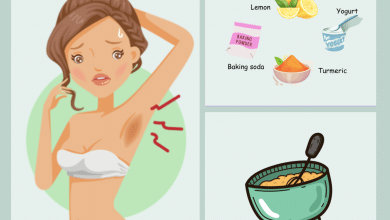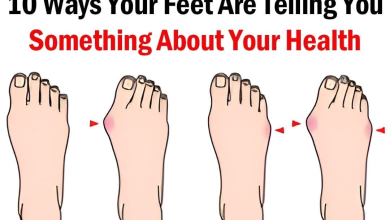The Dirtiest Body Parts According to “The Grandmother Hypothesis”

Researchers at George Washington University (GW) tested what they dubbed “The Grandmother Hypothesis” referring to the stereotypical grandma’s advice to wash behind the ears, between the toes, and in the belly button. These are all areas people tend to wash less frequently than their necks, armpits, etc.
After taking skin swabs from 129 participants, the researchers found that when these areas aren’t washed often enough, it gives the opportunity for bacteria to form eczema, acne, and other skin conditions. Although this study had a small sample size, it points to the importance of washing the body properly.
“Washing our body gets rid of dirt, odor, and allergens that have built up on your skin throughout the day, but it also removes your body’s dead skin cells, sweat, and natural oils found on your skin,” says Laura Purdy, MD, a Miami-based family medicine physician. “Your skin can also be hosting some bacteria, viruses, or fungi, so washing these areas is important to cleanse your skin.”
Washing Behind the Ears

Body oils and dead skin cells easily get trapped in creases or folds in the skin, such as behind the ear. Failing to wash this dirty area of the body can result in irritations. “The buildup of skin debris can become an inflammatory skin condition known as ‘seborrheic dermatitis,’” says Stacey Tull, MD, a double-board-certified dermatologist and micrographic dermatologic surgeon. “This is the skin counterpart to dandruff on the scalp.”
Similar to dandruff, seborrheic dermatitis leads to itchy flakes forming behind the ears. “Any inflammatory condition of the skin can lead to cracks in the natural skin barrier, allowing bacteria in and causing infections,” Dr. Tull says. Scratching the area with unwashed hands heightens the risk of introducing bacteria to the area. Additionally, the skin can develop eczema and a bad odor from a buildup of sweat.
“Washing behind the ears should be no different than washing the rest of your body,” says Dr. Tull. “Use whatever type of soap your skin is used to. If you use a washcloth elsewhere, use it here, too. I personally just use soap and the friction of my fingers to wash my entire face and body.”
Washing Between the Toes

Many people in the shower rely on the flow of water and soap to clean their feet, but this is insufficient for the space between their toes. “Because the skin between the toes does not produce as much oil as other areas of the body, the consequences of not washing here are slightly different,” Dr. Tull says. However, it can lead to a buildup of dirt, dead skin, and sweat.
Since all of this is trapped by socks and shoes, the feet become a hotspot for bacteria and fungi. “You could develop athlete’s foot, which is a fungal infection of skin that typically occurs in between the toes,” Dr. Purdy says. “Your feet may be itchy, peeling, scaly, and your skin may develop a rash or crack.” Additionally, this area can become breeding grounds for dermatitis or cellulitis, which is a skin infection that can spread through the leg.
Fortunately, it’s easy to keep the feet clean. Whenever you’re in the shower, use soap to wash between the toes then rinse them. You can also opt for a foot bath every one or two days if you prefer. Moreover, change your socks regularly to avoid the same sort of buildup there.
Washing Inside the Belly Button

The navel is often one of the dirtiest parts of the body. It easily accumulates sweat, dead skin, and even bacteria and fungi that can lead to bad odor and infections. The most common are staph and yeast infections that can make the area red, itchy, irritated, and scabbed. Fortunately, there’s no special kind of soap required to clean the belly button, although you should clean it everyday or so and take care to wash between the small folds of the skin. People with a navel piercing should be even more careful to keep the area clean.
You can use your finger or a cotton swab to rub soap over the navel before rinsing it. But be careful not to irritate the area. “Care should be taken to not be too aggressive, such as digging into the area with a Q-tip, because this can induce extra trauma,” Dr. Tull says.
More Important Shower Tips

- Choose a cleanser that works with your skin type. People with sensitive or dry skin should avoid soaps with alcohol, fragrances, and other irritants. If you’re acne-prone, look for cleaners containing benzoyl peroxide.
- Don’t underestimate water. You don’t need to use soap over areas that don’t produce a lot of oil and swear like the arms, legs, chest, and back. Water is usually adequate for cleaning these areas, and using cleansers may dry out the skin.
- Showers are generally more effective at cleaning the body compared to baths. Sitting in a tub with microbes makes it more likely to develop an infection, so if you love baths, clean the tub on a regular basis, and get in the habit of rinsing it out after you are done.
- Avoid using too much soap and very hot water since this could irritate the skin.







